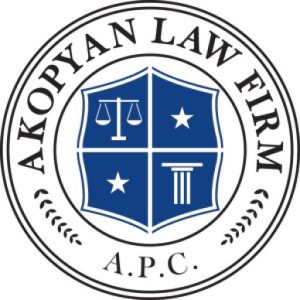San Diego Employment Law Attorneys
Employment Litigation in San Diego, California
San Diego is one of California’s largest and most diverse cities — a place where coastal beauty meets innovation and opportunity. With a population of over 1.3 million residents, San Diego serves as the economic and cultural heart of Southern California’s southernmost region. Its identity is shaped by a mix of industries that include defense, technology, healthcare, tourism, education, and biotechnology, each contributing to a workforce as varied as the city itself.
 Founded in 1769 as California’s first Spanish mission and presidio, San Diego evolved from a small port and naval town into a major urban center by the twentieth century. It became a city of national significance during World War II, when the defense and shipbuilding industries expanded rapidly. Today, San Diego continues to thrive as a hub of research, innovation, and entrepreneurship. Its neighborhoods — from Downtown and Hillcrest to La Jolla, North Park, and Mira Mesa — each reflect a unique mix of history, culture, and business activity that makes San Diego both dynamic and distinctive.
Founded in 1769 as California’s first Spanish mission and presidio, San Diego evolved from a small port and naval town into a major urban center by the twentieth century. It became a city of national significance during World War II, when the defense and shipbuilding industries expanded rapidly. Today, San Diego continues to thrive as a hub of research, innovation, and entrepreneurship. Its neighborhoods — from Downtown and Hillcrest to La Jolla, North Park, and Mira Mesa — each reflect a unique mix of history, culture, and business activity that makes San Diego both dynamic and distinctive.
Akopyan Law Firm, A.P.C. represents employees and employers throughout the city of San Diego in all aspects of employment litigation. Our attorneys focus exclusively on employment law disputes and bring extensive trial experience to every case we handle.
Employment Law in San Diego
San Diego’s economy and workforce are among the most diverse in the nation. With employers ranging from global corporations to small family-owned businesses, the city is home to nearly every type of workplace imaginable. This diversity also means that employment disputes can arise in any industry and take many forms — from issues of wrongful termination or discrimination to disputes over wages, hours, or workplace conduct.
California’s employment laws are among the most comprehensive and employee-protective in the country. These laws establish detailed requirements for how employers must treat workers, compensate them, and address workplace problems. When those laws are violated — intentionally or unintentionally — litigation often becomes necessary to resolve the matter.
Akopyan Law Firm provides representation in employment litigation involving wrongful termination, discrimination, harassment, retaliation, and wage-and-hour violations. Our attorneys approach every case with preparation, professionalism, and purpose. We represent both employees and employers in courts throughout San Diego County and across California.
Representation for San Diego Employees
Employees across San Diego’s many industries — from healthcare and education to hospitality, manufacturing, and technology — work hard to support their families and build their careers. When they encounter unlawful treatment in the workplace, the consequences can be significant.
Akopyan Law Firm stands up for employees whose rights have been violated under California law. We handle cases involving discrimination based on race, gender, age, disability, or other protected categories; sexual or workplace harassment; retaliation for reporting misconduct; wrongful termination; and unpaid wages or overtime. Our attorneys provide strong advocacy, guiding clients through each stage of the litigation process with skill and determination. We understand the stakes involved in employment disputes and work tirelessly to secure outcomes that protect our clients’ interests and restore their confidence.
Employment Litigation for San Diego Employers
San Diego’s employers face an evolving and often challenging legal landscape. Businesses must navigate an extensive framework of state and federal employment laws that govern everything from hiring and termination to pay practices and workplace investigations. Even well-intentioned employers can find themselves defending against claims that carry serious financial and reputational risks.
Akopyan Law Firm represents employers in employment-related litigation throughout San Diego. We handle cases involving discrimination, retaliation, harassment, wrongful termination, and wage-and-hour disputes. Our attorneys have deep experience in courtroom advocacy and are equipped to defend our clients effectively in both state and federal courts. We focus on providing strategic, efficient representation that protects our clients’ interests and supports long-term stability for their businesses.
San Diego’s Economy and Workforce
San Diego’s workforce reflects the breadth of its economy and geography. The presence of major universities, research institutions, and biotech companies has made the city a center for science and innovation. At the same time, the region’s strong military and defense presence — including Naval Base San Diego, Marine Corps Air Station Miramar, and Camp Pendleton nearby — has shaped both its culture and its economy. Tourism, hospitality, healthcare, and education also play major roles in sustaining employment throughout the city.
This combination of industries creates a highly skilled, dynamic workforce. It also means that employment disputes in San Diego can vary widely — from executive-level contract issues to hourly wage claims and everything in between. Akopyan Law Firm has experience litigating across this full spectrum, offering representation that reflects both the complexity and diversity of San Diego’s workplaces.
Neighborhoods and Employment Culture
Each part of San Diego has its own economic identity. Downtown and the Gaslamp Quarter are home to businesses in hospitality, law, and finance. La Jolla and Sorrento Valley host technology and life sciences firms. Mission Valley, Mira Mesa, and Kearny Mesa anchor retail, manufacturing, and logistics sectors. Farther inland, communities like Rancho Bernardo, Carmel Mountain, and Poway contribute to the region’s corporate and technology base.
Employment issues in San Diego mirror this diversity — arising in restaurants and hospitals, laboratories and offices, classrooms and construction sites. Akopyan Law Firm’s litigation practice is designed to meet these wide-ranging needs with experience, insight, and adaptability.
Why Choose Akopyan Law Firm for Employment Litigation
Employment disputes require more than knowledge of the law — they demand strategy, persistence, and the ability to litigate effectively. Akopyan Law Firm brings all of these qualities to every case we take. Our attorneys are experienced trial lawyers who understand how to build strong cases, negotiate effectively, and present persuasive arguments in court.
Our firm’s sole focus on employment litigation allows us to dedicate the time, energy, and resources needed to deliver results. We represent employees seeking justice and employers defending their rights with equal skill, precision, and commitment.
Contact Akopyan Law Firm, A.P.C.
If you are an employee or employer in San Diego facing an employment-related dispute, Akopyan Law Firm is ready to help. Our attorneys focus exclusively on employment litigation and have extensive experience handling cases throughout Southern California.
To discuss your case or schedule a confidential consultation, contact Akopyan Law Firm, A.P.C. today. Our team provides skilled representation and dedicated advocacy in every employment law matter we handle.
We Can Help San Diego Residents With Cases Involving:
Featured Article:
When Major Pay, Hours, or Job Duty Changes May Be Treated as Constructive Discharge in California
📌 Key Takeaways Significant negative changes to pay, hours, schedule, or job duties—especially after an employer learns of a worker’s disability or qualifying medical condition, medical restrictions, or a request for reasonable accommodation—may support a constructive discharge analysis under California employment law, depending on the facts. A resignation may be treated as involuntary if an employer creates or allows working conditions that become objectively and subjectively intolerable, and the worker resigns because of those conditions. Sudden loss of overtime, deep hour cuts, or reassignment to a lower-paying position after medical disclosure or an accommodation request may be relevant to whether an employer applied financial pressure tied to protected status or protected activity. Schedule changes—such as rotating graveyard shifts, split shifts, or constantly changing start times—can matter when they interfere with treatment and recovery and begin after the employer receives medical restrictions or an accommodation request. Assigning duties that conflict with known medical restrictions may raise issues under disability-discrimination and reasonable-accommodation principles, including whether the employer engaged in the interactive process in good faith. Documentation often matters, including pay records, time sheets, job descriptions, written medical restrictions, and communications about scheduling, duties, and complaints. ~ ~ ~ ~ ~ ~ ~ ~ ~ ~ ~ ~ ~ ~ ~ ~ ~ ~ In California, resignation is not always treated as purely voluntary. In some situations, significant negative changes to pay, hours, scheduling, or job duties may be analyzed under the doctrine of constructive discharge. In general terms, constructive discharge is alleged when an employer’s actions (or failure to act) create working conditions that are so intolerable that a reasonable person would feel compelled to resign, and the worker actually resigns because of those conditions. Courts typically evaluate constructive discharge based on the totality of circumstances, including the severity of the conditions, whether the resignation was caused by those conditions, and whether the employer caused or failed to remedy the conditions. When Working Conditions May Support a Constructive Discharge Claim Many workers describe resigning only after conditions changed in ways that made continued employment unrealistic. For example, a worker may return after an injury to frequent schedule changes, more physically demanding assignments, and reduced income. Another worker may provide medical restrictions and then experience increased scrutiny, disciplinary write-ups, or job reassignments shortly afterward. A key issue is not simply whether the worker resigned. The issue is whether the employer’s conduct (or lack of corrective action) created conditions that could be argued to be intolerable and effectively left the worker with no reasonable alternative but to resign. Major Pay Changes That May Increase Pressure to Resign Sharp reductions in earnings may be relevant in a constructive discharge analysis, particularly when they follow an employer’s awareness of a worker’s disability or qualifying medical condition, medical restrictions, or a request for reasonable accommodation. Examples may include: Loss of overtime that a worker previously relied on, beginning soon after the worker submits medical restrictions or requests an accommodation. Deep reductions in scheduled hours that significantly... Read more
Constructive Discharge and Retaliation: What “Pressure to Quit” May Look Like in California Workplaces
📌 Key Takeaways Pressure to resign can sometimes align with legal concepts such as constructive discharge or retaliation, particularly when workplace conditions deteriorate after a worker engages in protected activity (like complaining about discrimination, harassment, wage issues, or safety concerns) or requests help related to a disability or qualifying medical condition. Pressure without a formal termination may show up as reduced shifts, heightened scrutiny, or constant criticism that gradually makes continued employment feel untenable. Discipline that follows protected activity—such as sudden write-ups, performance improvement plans, reduced hours, or loss of preferred routes after a complaint—may raise questions about retaliatory motivation. Punitive work assignments—such as being assigned to the hottest area, the dirtiest tasks, or constant heavy lifting soon after a complaint—may be cited as part of a pattern intended to push a worker out. Pressure tied to disability or a medical condition may include silence after a reasonable accommodation request, delayed responses, or scheduling/assignment changes that conflict with documented restrictions. Hostility and selective enforcement—including exclusion, targeted jokes, public criticism, or rule enforcement applied only to the worker who complained—may strengthen concerns that the conduct is not ordinary supervision. These patterns do not automatically mean the law was violated. They can, however, be meaningful “sequence and timing” facts that an employment lawyer may evaluate in context. ~ ~ ~ ~ ~ ~ ~ ~ ~ ~ ~ ~ ~ ~ ~ ~ ~ ~ In many workplaces, an employer does not announce a termination. Instead, an employer may change schedules, increase discipline, or allow hostility to build until a worker feels they have no realistic choice but to resign. That dynamic can be especially destabilizing when a worker is trying to maintain rent payments, manage medical expenses, or support family members while also facing reduced income or escalating pressure at work. The legal significance often turns on what changed, when it changed, and why it changed—especially after protected activity or after a request tied to disability or a qualifying medical condition. Constructive Discharge and Retaliation Constructive discharge Constructive discharge is a legal concept used when an employer’s conduct effectively forces a resignation. While the precise standard is fact-specific, the core idea is that working conditions may become so intolerable that a reasonable person would feel compelled to resign—and the worker resigns because of those conditions. A constructive discharge theory is often analyzed alongside other claims, such as discrimination, harassment, or unlawful retaliation, because the same conduct that makes conditions intolerable may also reflect an unlawful motive. Retaliation Retaliation generally refers to adverse treatment that follows protected activity, such as: complaining about discrimination or harassment, reporting wage issues, raising workplace safety concerns, making a whistleblower report, or requesting reasonable accommodation related to a disability or qualifying medical condition. In retaliation analysis, timing alone is rarely the whole story. But when protected activity is followed by adverse actions—like write-ups, reduced hours, or undesirable assignments—those sequences may become important in evaluating whether the employer’s stated reasons are credible. Workplace Patterns That May Look... Read more
What “Intolerable Working Conditions” Mean for Constructive Discharge Under California Employment Law
📌 Key Takeaways Working conditions are typically considered “intolerable” for constructive discharge purposes only when they become so severe or pervasive, and so sustained, that a reasonable employee in the same position would feel compelled to resign. Objective and subjective lens: The analysis commonly asks both whether a reasonable person would feel forced to quit (objective) and whether the employee actually resigned because of the conditions (subjective). High threshold: Ordinary workplace friction—unfair criticism, inconvenient schedules, or personality conflicts—often does not meet the legal standard by itself. Patterns matter: Duration, escalation, and whether management knew (or should have known) about the problem—and how management responded—often matter more than a single incident. Concrete examples help show severity: Repeatedly assigning work that conflicts with documented medical restrictions, mocking an employee’s injury, or escalating dangerous assignments after a safety complaint may support an argument that conditions became intolerable, depending on the full context. Overlap is common: The same facts may also implicate disability discrimination, failure to reasonably accommodate, failures in the interactive process, harassment, or retaliation. Constructive discharge analysis generally focuses on extreme workplace conditions, not ordinary dissatisfaction. ~ ~ ~ ~ ~ ~ ~ ~ ~ ~ ~ ~ ~ ~ ~ ~ ~ ~ Many employees resign because work feels unbearable. Under California employment law, a resignation may be treated like a termination in certain circumstances if the employee can show constructive discharge—meaning the employer created, allowed, or failed to correct working conditions that became intolerable under the legal standard. In plain terms, “intolerable working conditions” generally means conditions that are so serious and sustained that a reasonable employee in the same situation would conclude resignation is the only realistic option. Constructive Discharge: A Plain-Language Overview of the Legal Concept constructive discharge or constructive termination is considered to have happened when: Working conditions became intolerable under an objective “reasonable employee” standard, The employee resigned because of those conditions, The intolerable conditions are tied to what the employer did, allowed, or failed to address (for example, management actions, supervisor conduct, or management’s failure to correct known problems). A key takeaway for readers is that the doctrine is not meant to convert every difficult workplace into a termination claim. It is typically reserved for situations where the working conditions are beyond ordinary workplace stress and instead reflect sustained, serious harm. Examples That May Contribute to an Intolerable Environment The following hypotheticals illustrate the type of facts that may support a constructive discharge analysis, depending on severity, duration, documentation, and the employer’s response: Ignoring documented medical restrictions and escalating pressure: An employee provides medical documentation limiting heavy lifting. A supervisor repeatedly assigns heavy-lifting tasks anyway, threatens discipline if the employee refuses, and mocks the injury in front of coworkers. If management knows this is happening and does not intervene, the employee may argue the employer allowed the workplace to become intolerable. Punishing a safety complaint with dangerous work and harassment: An employee reports serious workplace safety hazard. After the report, the supervisor assigns the... Read more
Constructive Discharge vs. Wrongful Termination in California: How Employment Ended vs. Why It Ended
📌 Key Takeaways Constructive discharge is typically alleged when an employee resigns because working conditions became so intolerable that a reasonable person would feel compelled to resign. Wrongful termination generally refers to an employer ending employment for a reason that is alleged to violate the law, such as discrimination, retaliation, or a violation of public policy. How employment ended matters: Constructive discharge focuses on a resignation that the employee alleges was compelled by objectively intolerable working conditions, usually based on more than a single dispute. Why employment ended matters: Wrongful termination focuses on the employer’s stated reason or motivation and whether that reason is alleged to be unlawful. Form versus substance: A dispute may involve an employer’s records reflecting a “resignation,” while the worker alleges the employer’s conduct effectively forced the resignation. Overlap is common: Alleged hostility after a disability disclosure, a request for reasonable accommodation, participation in the interactive process, or job-protected medical leave (FMLA/CFRA) may support both theories depending on the facts. Facts control the labels: Timelines, workplace communications, and the seriousness and duration of conditions typically drive how attorneys and the trier of fact evaluate the dispute. ~ ~ ~ ~ ~ ~ ~ ~ ~ ~ ~ ~ ~ ~ ~ ~ ~ ~ When a job ends in California, two terms often appear in employment disputes: constructive termination and wrongful termination. These terms address different questions. Constructive discharge usually addresses how employment ended—through a resignation that the employee alleges was compelled by intolerable conditions. Wrongful termination usually addresses why employment ended—because the employer’s reason for ending employment is alleged to violate legal protections, such as anti-discrimination or anti-retaliation laws or public policy. Constructive Discharge in California: Alleged Forced Resignation Under Intolerable Conditions Constructive discharge (sometimes called constructive termination) is commonly alleged when the employer’s records reflect that the worker “resigned,” but the worker contends the work environment became intolerable under the legal standard. The phrase “resignation in form, termination in substance” is often used as shorthand; the central legal question is whether the conditions were objectively severe enough that a reasonable person would have felt compelled to resign. In many cases, trier of fact evaluates factors such as: the severity of the conditions, the duration or escalation over time, whether the employer was aware of the conditions and had an opportunity to address them, and whether the conditions involved more than ordinary workplace conflict or a single unpleasant event. Constructive discharge allegations often arise after events such as disability disclosure, a request for reasonable accommodation, participation in the interactive process, or taking job-protected medical leave. Examples of Fact Patterns Often Alleged in Constructive Discharge Disputes (Illustrations Only) An employer sharply reduces duties or assigns demeaning work after an employee requests a reasonable accommodation for a disability. A supervisor escalates harassment or hostility after protected activity, such as requesting accommodation, participating in the interactive process, or taking job-protected medical leave. An employer imposes drastic negative changes—such as severe schedule disruption, reduced hours, or removal of... Read more









Millions of Dollars Recovered For Our Clients
Check Out Our Case Results






